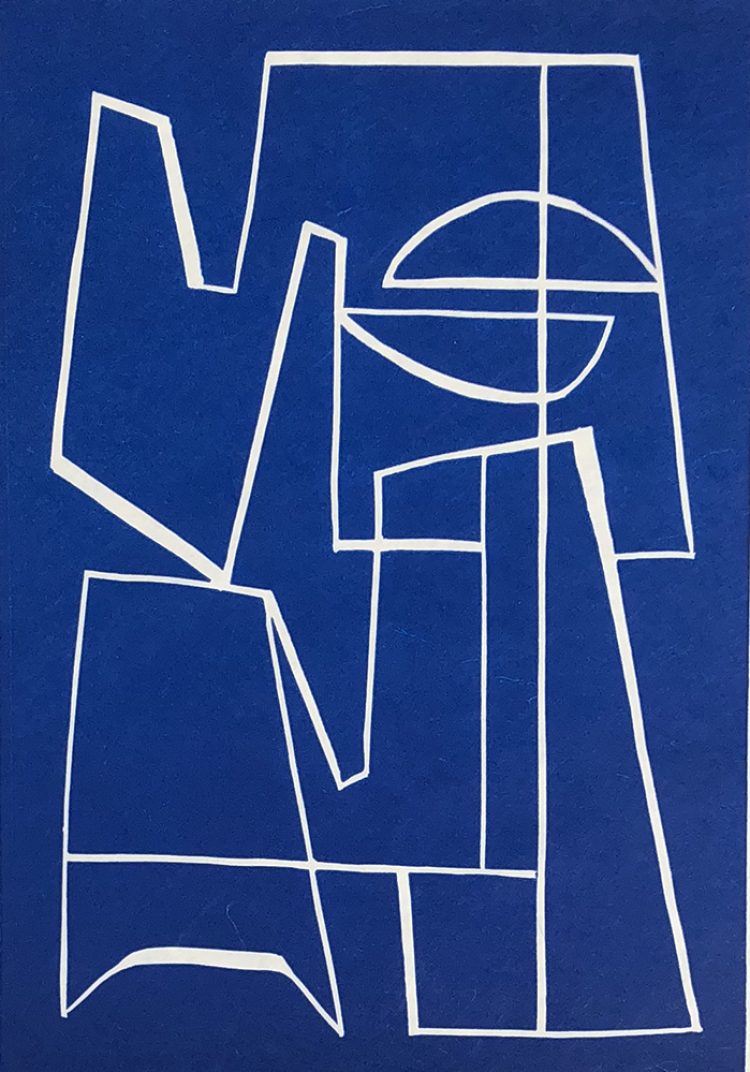
About this Work
About the Artist
Italian
b. 1888 Florence, Italy
d. 1971 Paris, FranceAlberto Magnelli was born in Florence on July 1, 1888. In 1907 he started painting and, by 1909, despite no formal art education, he was established enough to be included in the Venice Biennale. He joined the Florentine avant-garde befriending artists like Ardengo Soffici and Gino Severini. He also visited Paris where he met Guillaume Apollinaire and the Cubists including Pablo Picasso, Fernand Léger, and Alexander Archipenko. By 1915 he had adopted an abstract style incorporating cubist and futurist elements.Over the next few years Magnelli returned to figurative work and drifted away from the Italian avant-garde, which was becoming more supportive of Fascism, which he opposed. By 1931 he had returned to abstraction in the form of concrete art, featuring geometric shapes and overlapping planes. He moved to Paris, where he joined the Abstraction-Création group and became friends with Wassily Kandinsky, Jean Arp and Sophie Taeuber. Following the invasion of France by the Nazis, Magnelli and his future wife, Susi Gerson, went to live in Grasse with several other artists including the Arps. Some of the group, including Gerson, were Jewish so they were forced to hide. Despite this, the group was able to produce a number of collaborative works.Following the Second World War, Magnelli returned to Paris, which was to be his home for the rest of his life. He became a major figure in the post-war concrete art movement. He again exhibited at the Venice Biennale, this time with an entire room dedicated to him. His works are in the permanent collections of many major museums including New York’s Museum of Modern Art and the Guggenheim museum.
b. 1888 Florence, Italy
d. 1971 Paris, FranceAlberto Magnelli was born in Florence on July 1, 1888. In 1907 he started painting and, by 1909, despite no formal art education, he was established enough to be included in the Venice Biennale. He joined the Florentine avant-garde befriending artists like Ardengo Soffici and Gino Severini. He also visited Paris where he met Guillaume Apollinaire and the Cubists including Pablo Picasso, Fernand Léger, and Alexander Archipenko. By 1915 he had adopted an abstract style incorporating cubist and futurist elements.Over the next few years Magnelli returned to figurative work and drifted away from the Italian avant-garde, which was becoming more supportive of Fascism, which he opposed. By 1931 he had returned to abstraction in the form of concrete art, featuring geometric shapes and overlapping planes. He moved to Paris, where he joined the Abstraction-Création group and became friends with Wassily Kandinsky, Jean Arp and Sophie Taeuber. Following the invasion of France by the Nazis, Magnelli and his future wife, Susi Gerson, went to live in Grasse with several other artists including the Arps. Some of the group, including Gerson, were Jewish so they were forced to hide. Despite this, the group was able to produce a number of collaborative works.Following the Second World War, Magnelli returned to Paris, which was to be his home for the rest of his life. He became a major figure in the post-war concrete art movement. He again exhibited at the Venice Biennale, this time with an entire room dedicated to him. His works are in the permanent collections of many major museums including New York’s Museum of Modern Art and the Guggenheim museum.
